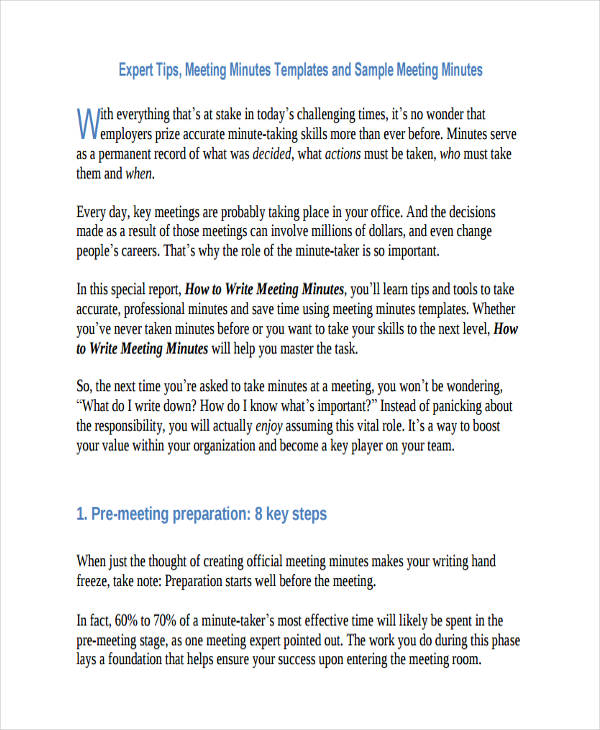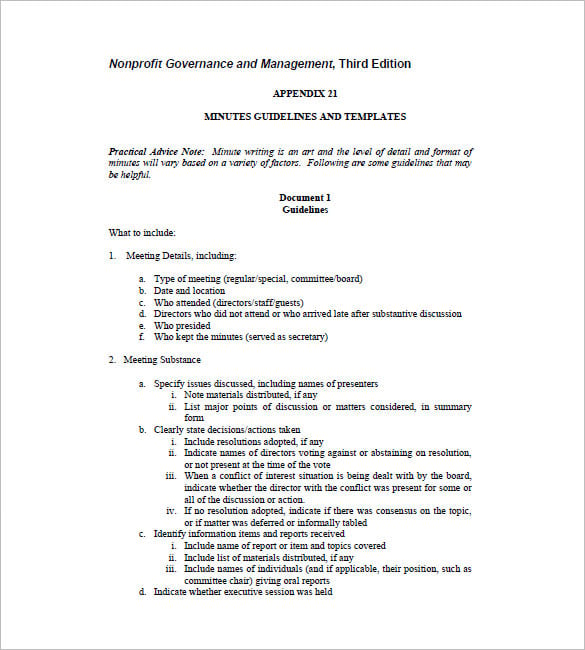
To mitigate the onslaught of meetings, companies resorted to establishing “No Meetings” days. If all of that wasn’t bad enough, there’s now a term for the negative effects of meetings: “meeting recovery syndrome.” This phenomenon refers to the feelings of fatigue and frustration that arise from a bad meeting.
#FOR BREVITY THE MINUTES OF A MEETING HOW TO#
To make matters worse, 75% of people haven’t even received training on how to conduct a meeting. Research shows that 90% of people daydream in meetings, and 73% use meeting time to get other work done. Working professionals ranked having too many meetings as the biggest workplace distraction. Unsurprisingly, the general consensus is that meetings suck. businesses reportedly lose a grand total of $37 billion a year due to unnecessary meetings. Bad meetings mean bad news for businesses. The majority of professionals now spend up to a third of their workweek stuck in meetings.Īnd the financial costs? They’re devastating. We waste a whopping 24 billion hours each year due to unproductive meetings. The data doesn’t lie: our meetings are broken. We need smart meetings, and we need them now. The pandemic accelerated the issue, and now we’re finally facing the consequences of our haphazard meeting culture. The truth is that we never mastered meetings.

The phrase “this should’ve been an email” made its way into our lexicon long before the pandemic. And given the meteoric rise of remote and hybrid work, the amount is sure to increase.īut that’s not the full story. Since 2020, companies have gone from holding 40 to 66 million daily meetings in the U.S.

Some argue that the pandemic created our current avalanche of meetings-and they’re not completely wrong. How did we get to this point? Why are we up to our eyeballs in meetings? The calendar notification of doom: time for the next meeting. You start crossing off items on your to-do list, and then-īam. Finally, the meeting ends and your real work begins. Your mind wanders to the multitude of tasks that you’d rather be dealing with. You ask yourself, “ Why am I even here? Why are any of us here?” You’re sitting in a meeting, watching the clock, and before you know it, the conversation goes sideways.


 0 kommentar(er)
0 kommentar(er)
